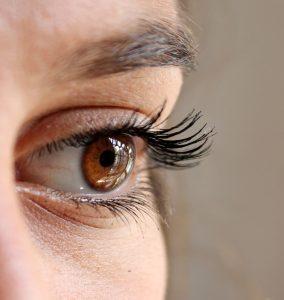Not many of us consider giving our eyes the same degree of regular checkups that we provide for our overall body health. An annual physical examination? Probably. A dental cleanup every six months? Sure. But how often do we think about scheduling a comprehensive eye examination? Furthermore, do we understand the potential implications neglecting our eye health can bring?
In this blog post, we’re venturing into an unexplored territory for many: eye health and, specifically, the importance of regular eye tests. Knowing the benefits and reasons for frequent eye test may shock you, making you rethink your approach to maintaining eye health. Are you ready to delve into the world of eye health and learn how vital regular checks are?
Why Regular Eye Checks Are Indispensable
Our eyes are windows to the world, facilitating countless daily functions. Unfortunately, common visual problems are often misconstrued as ‘normal’ and dismissed without a second thought. These can range from nearsightedness or farsightedness to more complex issues like glaucoma, or even life-threatening conditions like eye cancer. Thus, early detection via regular checks is crucial.
Apart from disease detection, regular eye exams also provide insight into our overall health. Your optometrist could be the first to spot signs of high blood pressure, diabetes, or even a brain tumor, just from studying your eyes. Regular eye exams aren’t just about getting a new pair of glasses – they’re an important part of taking care of your body.
While the necessity of regular eye exams is clear, how often you should get them depends on several factors, including your age, eye health history, and specific risk factors. Let’s delve into this next.

Optimal Frequency for Eye Examinations
Despite being essential, there’s no universal ‘one size fits all’ answer for the perfect timing of eye exams. Ideally, individuals under the age of 60 should have eye checks every two years, while those over 60 should opt for annual checks. However, those with a family history of eye conditions should consider more frequent checks.
For children, early eye examinations are essential as they not only can detect vision problems but also conditions like amblyopia (lazy eye), which can have lifelong effects if not treated early. Experts suggest the first eye check at 6 months old, then a few more during preschool and school years.
Understanding your personal risk factors plays a key role in determining the frequency of your eye test.
Who Should Conduct Your Eye Examination?
There’s often confusion between an optometrist and an ophthalmologist. Essentially, optometrists are healthcare professionals who provide primary vision care, while ophthalmologists are medical doctors specializing in eye and vision healthcare.
Either professional can conduct general eye examinations. However, complex conditions or surgeries will require a consultation with an ophthalmologist. Moreover, apart from their capability, it’s crucial that you feel comfortable with your eye health professional, as developing a long-term doctor-patient relationship often leads to better healthcare outcomes.
The Unexpected Benefits of Regular Eye Examinations
Aside from detecting visual issues or eye diseases early, regular eye examinations have other benefits. They can help improve learning or reading problems in children caused by undiagnosed vision issues. They may also detect other systemic health issues, creating an early diagnosis opportunity.
Furthermore, maintaining up-to-date prescriptions for glasses or contact lenses is another key benefit. Incorrect prescriptions can cause headaches, hinder productivity, and affect your overall quality of life.
The Potential Consequences of Neglecting Regular Eye Checks
Avoiding regular eye checks doesn’t just risk unidentified eyesight issues, but it can also lead to irreversible damage in some cases. High-risk groups like people with diabetes, high blood pressure or older people are at a greater risk.
Without regular check-ups, potential vision loss could go undetected, leading to unnecessary difficulties. Imagine a life where your sight becomes a barrier, and simple activities like reading, driving, or even recognizing faces become increasingly challenging.
A Final Word on the Importance of Regular Eye Examinations
Our eyes are arguably one of our most important sensory organs, providing us with the ability to experience the world in a uniquely visual way. While the benefits of regular eye examinations are plentiful and the potential dangers of neglect are severe, the decision ultimately falls on each individual. We owe it to ourselves to prioritize our eye health—after all, our vision is a vital part of our quality of life.+”
